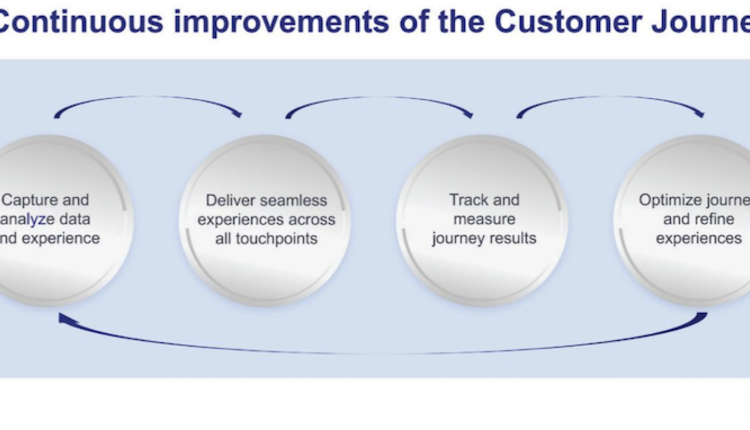
In an era defined by rapid technological evolution, the landscape of communication is undergoing a transformation of unprecedented proportions. Our world is more interconnected than ever before, with communication technologies serving as the conduits through which information, ideas and innovation flow. Yet, as our reliance on these technologies deepens, so does the need to ensure their resilience, adaptability and ethical soundness. The communication journey of today involves a maze of digital interactions and actors, leaving users to navigate against the unpredictable forces of tomorrow.
Here, we will embark on an exploration of five of the key concepts, strategies and innovations that are reshaping how we communicate and connect in an increasingly complex and interconnected world. From harnessing the power of artificial intelligence to creating sustainable communication infrastructures, there are a myriad ways in which forward-thinking individuals and organizations can prepare our digital conversations regardless of an uncertain future.
Technologies and best practices today must be molded in response to the communicative challenges we face, actively shaping the conversations, connections and communities of tomorrow. To frame this discussion, begin by recognizing that future-proofing communications isn't just a necessity; it's an exciting frontier of innovation, ethics and human-centric design that promises to redefine the way we engage with the world and with each other.
With AI and interconnectedness advancements at the forefront of most communication conversations, understanding the way that AI-driven chatbots, voice assistants and predictive algorithms interact and affect our daily interactions is critical. As AI becomes more intuitive, personalized and context-aware, the speed and efficiency of information exchange increases, playing a pivotal role in breaking down language barriers with real-time translation and facilitating dynamic content generation.
- Dynamic Interconnectedness — The future of communication lies in the seamless interconnection of devices, platforms and technologies. To future-proof communications, we must create systems that adapt effortlessly as user preferences and technology evolve. Whether it's transitioning from a smartphone to a smartwatch or moving from a video call to an augmented reality environment, the ability to continue conversations seamlessly across various mediums will be essential. This interconnectedness will allow communication experiences to transcend individual devices and offer a consistent and unified user experience regardless of the technology being used.
- Adaptive AI Integration — As AI capabilities continue to advance, integrating adaptive AI into communication tools will be pivotal. These AI systems will not only facilitate real-time language translation but also recognize context, predict responses, and generate content that aligns with individual communication styles. Whether assisting in drafting emails, providing on-the-fly language translation during video calls, or suggesting relevant information in a conversation, AI will enhance communication by making it more efficient and natural.
- Holistic Data Security — In an era of growing cyber threats, future-proofing communications demands a holistic approach to data security. Encryption alone won't suffice; instead, communication systems need to integrate decentralized authentication mechanisms, AI-driven threat detection and predictive security measures. By creating comprehensive security frameworks, communication channels can be safeguarded against emerging cyber threats and privacy breaches, ensuring user confidence in the integrity of their interactions.
- Cognitive Communication — The future holds the promise of direct communication between the human brain and digital devices. Future-proofing communication involves developing interfaces that bridge this gap, allowing individuals with limited physical abilities to interact more effectively with technology. Whether it's enabling someone to compose messages through neural signals or control smart home devices with their thoughts, cognitive communication has the potential to reshape how we interact with the digital world. With many of these technologies in advanced stages of development, the opportunity to integrate and collaborate with these products will be beneficial to those who obtain first-mover advantage.
- Ethical AI Communication — As AI-driven communication becomes more prevalent, ethical considerations become paramount. Future-proofing communication involves implementing AI systems that adhere to ethical guidelines, ensuring transparency in decision-making, fairness in interactions, and accountability for the outcomes of automated communication. By fostering ethical AI communication, we can build trust in technology and mitigate potential risks associated with AI-powered interactions.
Without question, transformative technology is reshaping the way we connect and collaborate, promising a future where communication is not constrained by language, device, or geography, but flows effortlessly across the digital landscape.
From artificial intelligence and blockchain to biotechnology and quantum computing, the future of collaboration will center around technologies which go beyond incremental improvements, fundamentally altering how we work, and interact with the world. As these advancements deploy globally, communication will continue to be relied on to solve complex challenges, enhance efficiency, and unlock new frontiers of human capability. However, they also raise profound questions about ethics, privacy, and societal impact. As transformative technology continues to advance, it invites us to navigate a path of both incredible promise and thoughtful consideration, where the future is limited only by the boundaries of our imagination and our capacity for responsible stewardship.
An established leader focused on corporate efficiency, strategy and change, Eric Riz founded data analytics firm VERIFIED and Microsoft consulting firm eMark Consulting Ltd. Over a 20-year career in the Microsoft space, Eric has worked extensively in the areas of document and records management, web content management, portals, digital business and process analysis, analytics, metadata, and data management. His outlook on Blockchain, WEB3, governance, and change management is welcomed internationally as a keynote speaker and author, offering thought leadership on data strategies and solutions, and shifting corporate focus to the organization's specific needs.









